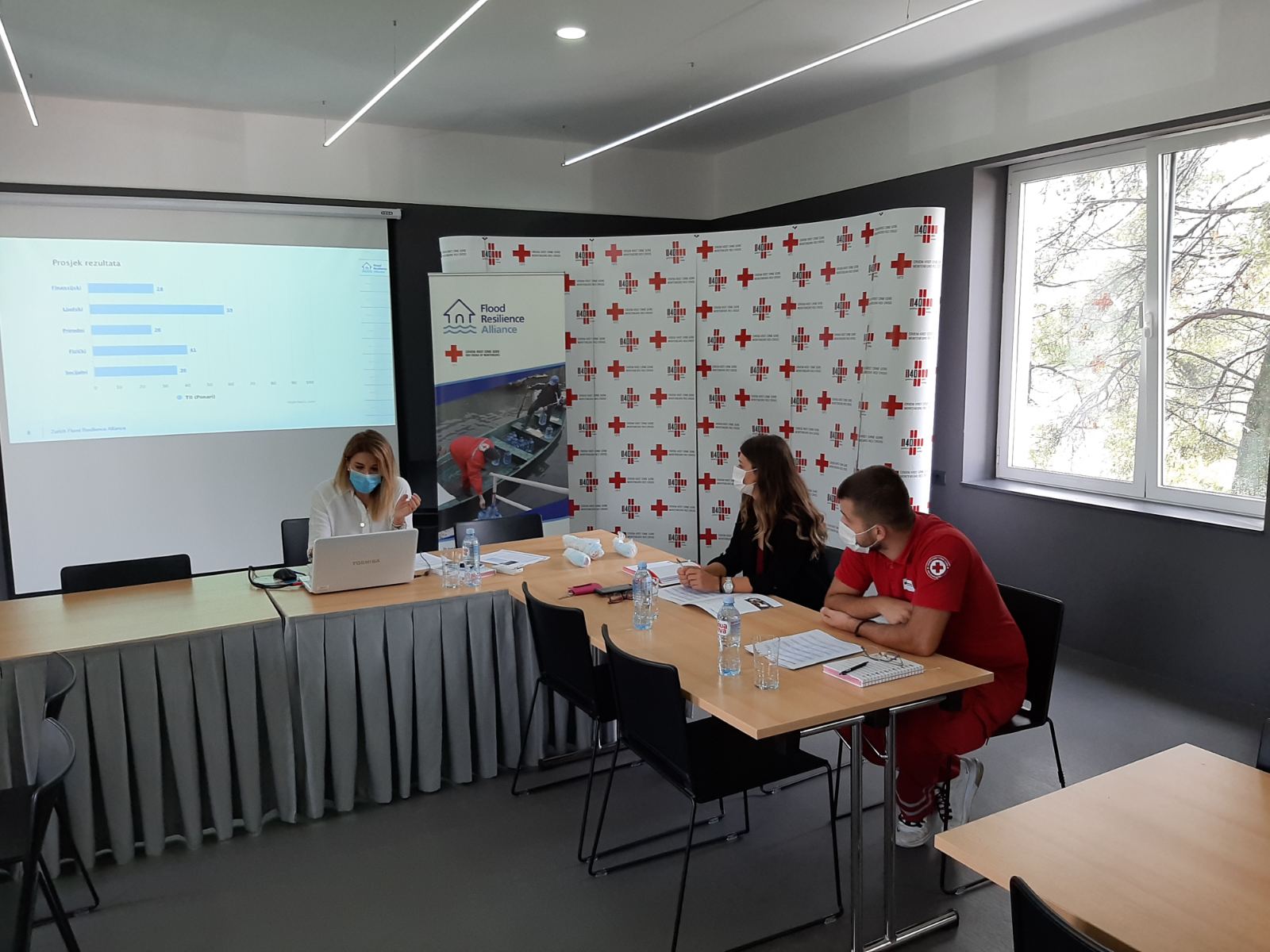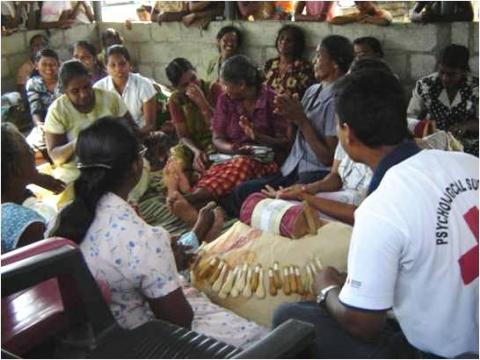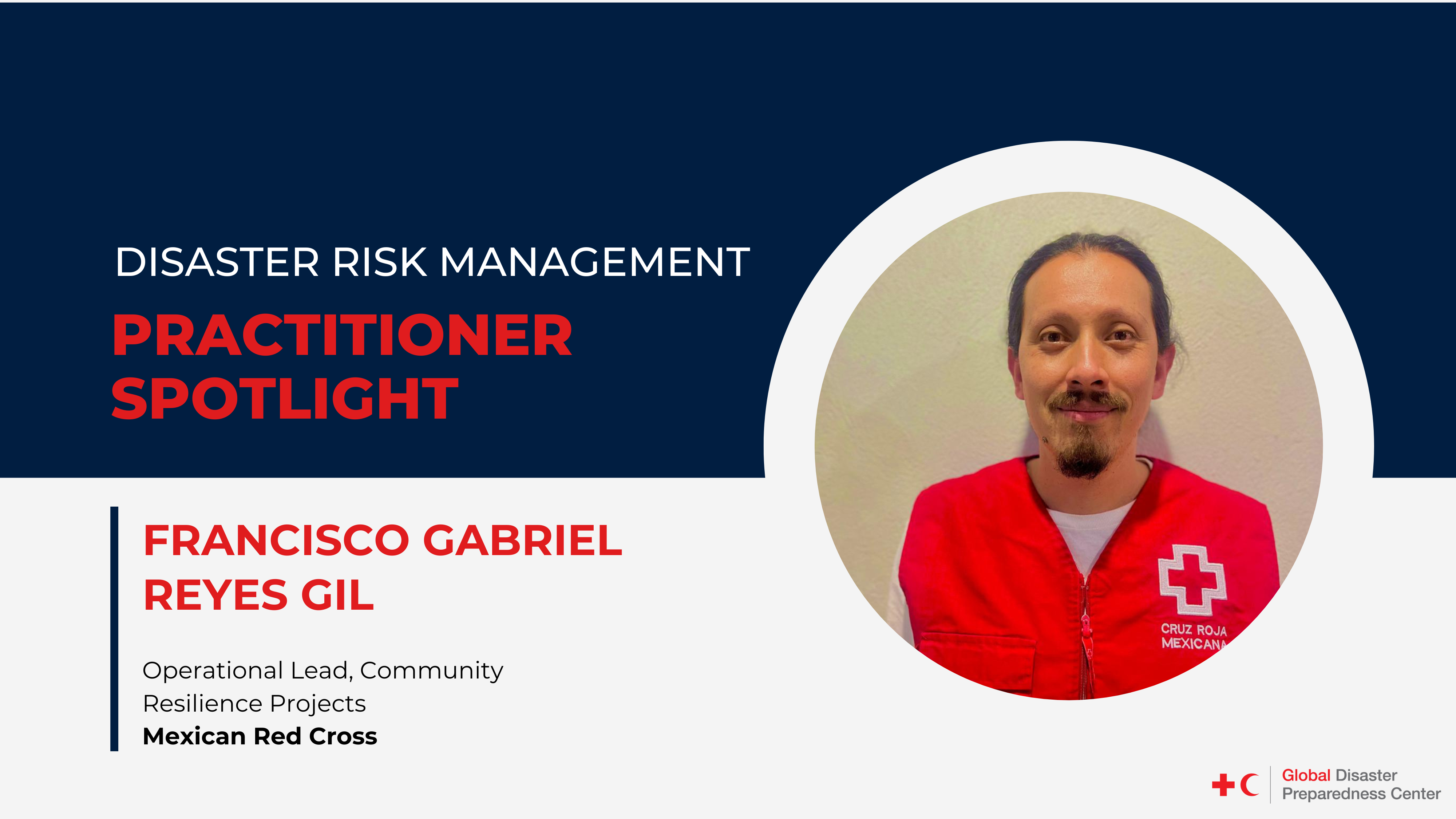Better together: Working with local partners to build flood resilient infrastructure in Montenegro


The complex picture of flood resilience
The FRMC revealed a complex picture of Ponari’s flood resilience with both strengths and weaknesses across human, social, financial, physical, and natural capital. For example, the analysis showed strengths in the areas of evacuation and safety knowledge, flood exposure awareness, flood healthcare access, and community safety. Yet, the Red Cross of Montenegro and partners also found critical entry points for flood resilience building in the areas of, amongst others, asset protection knowledge, first aid knowledge, community participation in flood related activities, early warning systems, and large-scale flood protection.

Particularly large-scale flood protection was identified as an important area of intervention through review of the government’s local plan for flood protection and key informant interviews. While different infrastructure measures for flood protection exist around Ponari and neighbouring communities, these provide only partial protection. The plan lists several structural and non-structural measures for increasing communities’ flood resilience including the (re)construction of dams, embankments, and drainage channels.
At the same time, we know that only a combination of complementary structural and non-structural measures will provide the best results. For this reason, it was very important to analyse all existing documents adopted by the local and national government, analyse the FRMC results and consult the community and other stakeholders to find the best possible solutions mix considering existing resources and capacities.
Red Cross strength lies in human and social capital building
The Red Cross of Montenegro have years of experience in humanitarian response and working with communities in the areas of human and social capital. We are building on this experience to address some of the critical issues we identified through the FRMC. For example, through first aid trainings and community-based education on disaster risk reduction, we want to enhance community members’ capacities to prepare for and respond to floods and other hazards.
The Red Cross of Montenegro have years of experience in humanitarian response and working with communities in the areas of human and social capital. We are building on this experience to address some of the critical issues we identified through the FRMC. For example, through first aid trainings and community-based education on disaster risk reduction, we want to enhance community members’ capacities to prepare for and respond to floods and other hazards.

These activities help build both human and social capital. Bringing people together nurtures community cohesion and facilitate dialogue around longer-term community resilience. Similarly, leading by example, we are pushing for more participation of community members in flood related activities and decision-making of local authorities. Once the Covid-19 situation in Montenegro starts improving and it is safe to do so, we will relaunch these face-to-face activities in Ponari.
Joining forces with relevant partners for technical expertise and resources
For other areas of intervention, for example related to infrastructure projects, we are teaming up with relevant partners who can provide complementary technical expertise and resources. From the very beginning of the flood resilience programme, we worked very closely with the local authorities of Golubovci to select what communities to work with, develop the project plan, and coordinate the FRMC implementation. Results and insights from the FRMC were presented to and discussed in detail with the authorities and community.
This early engagement, well aligned interests of all actors, and full transparency throughout the project has enabled a trusting and efficient relationship with the municipal authorities. Thereby, we have been able to convince the municipality to provide technical and financial support for the enhancement of the flood protection wall in Ponari. Not only did the municipality provide direct financial support for the project but they also hired the construction company, set up a supervisory body for risk assessment and quality control, and managed the administrative process – for example getting the approval from the national water agency.

As the result of traditionally good relationship with the Red Cross of Montenegro, and in spite of the challenging circumstances caused by the epidemiological situation, we were able to reconstruct the protection wall which increased its defence function and decreased the vulnerability of the local community. For this reason, we express our gratitude to the Red Cross of Montenegro and the Zurich Flood Resilience Alliance for deciding to support and empower local communities vulnerable to flooding in the area of our municipality.
Tanja Stajovic, Mayor of the Local Municipality of Golubovci
Enhancing the flood protection infrastructure
The 380-meter-long wall that protects Ponari was built in 1953 to prevent the harmful impacts of high levels of Moraca River to material and natural resources. After unprecedented floods in 2010 the wall was damaged and therefore no longer served its protective function. The repair and enhancement of the wall was urgently needed but never implemented due to a lack of municipal funding and competing priorities.

We must acknowledge that a changing climate means infrastructure that might have been adequate in the past won’t be in the future. While the climate in Montenegro is generally expected to become hotter and drier, the government of Montenegro also expects that “climate change will increase the frequency and severity of many types of extreme weather events; besides droughts and forest fires, there may also be floods and storms, among other things.”

Taking this into consideration, we did not only repair the wall to get back into its earlier state. We also made it higher and stronger to withstand even bigger floods in the future. The enhanced wall will not only protect the lives, livelihoods, cultural sites such as the church and cemetery, and assets in Ponari but also in neighbouring Zabljak Crnojevica.
Better together
The completion of the construction work in March 2021 was positively received by the people of Ponari. Residents believe that it will significantly improve their resilience to floods. Municipality officials were very satisfied with the outcomes too and restated their ambition for similar joint projects with us in the future.
“I am satisfied that the flood protection wall was finally repaired, especially that it has been made higher in several places because this will significantly protect the community from future flooding.”
Mujo Kavaric from Ponari
Clearly, this project showcased how you can achieve more by working together. It will serve as a good example for similar projects in other flood prone communities in the municipality. Cooperating with local stakeholders and leveraging their expertise and additional resources, we can complement our own strengths in the areas of human and social capital to bring more benefit to the communities. Therefore, we will continue this collaborative approach in the coming years of our work as a member of the Zurich Flood Resilience Alliance.

This blog was written by Jonathan Ulrich, and Francisco Ianni and originally published on the Flood Resilience Portal of the Zurich Flood Resilience Alliance. Please find the original story here. Find out more about the work the Red Cross of Montenegro is doing on our country page or in our country brief.



